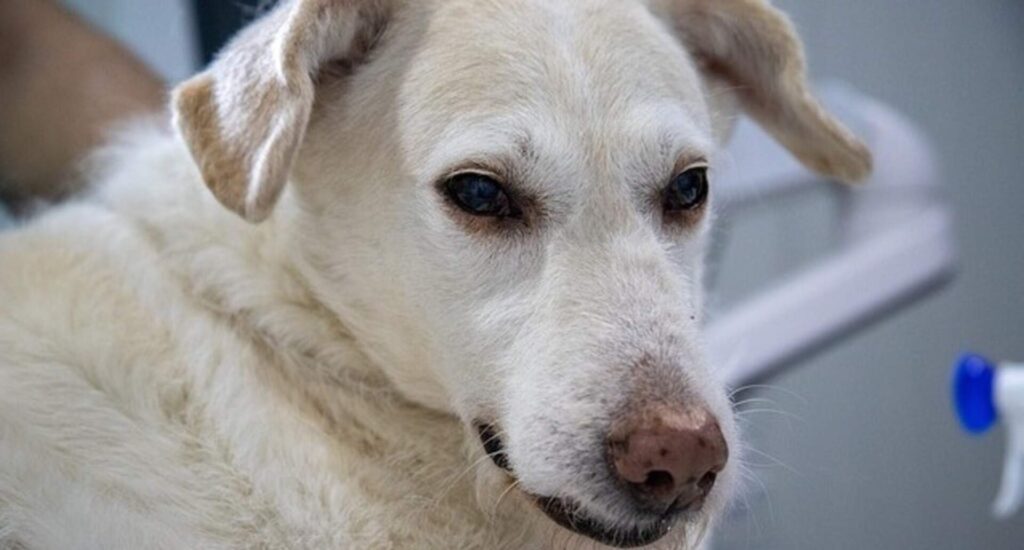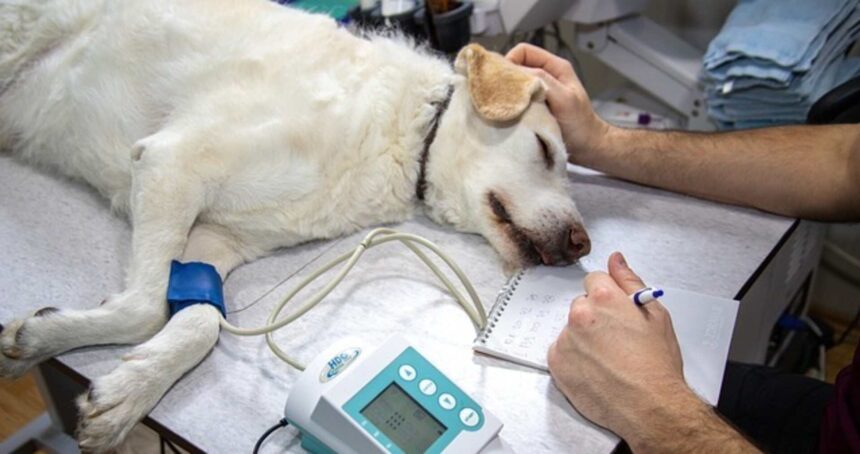One of the hardest things a pet owner has to do in their own backyard is probably decide whether to give their furry companion a lights-out period. Many complicated feelings, such as intense grief, remorse, and even terror, are associated with this decision. One cannot stand to think of parting with a pet because of the intense love and attachment that is shared. Conversely, there’s the awareness of their pain or deteriorating quality of life, which makes one wonder what could be the most humane decision.
This decision will undoubtedly involve financial factors as well. Veterinary care can be expensive, especially when it comes to slaughtering and providing care for a dying animal. For some pet owners, these costs may add to the stress of an already difficult situation. It is crucial for pet owners to understand the financial aspect since it helps them to make the right decisions and plans.

Despite all of these material and psychological considerations, it’s critical to remember that choosing to end a pet’s life is a highly private and individual choice. Since every situation is different, there isn’t a single, universal solution.
Considerations for pet owners should include their pet’s general health and well-being as well as any clinical predictions made by their primary care physician. With the main intention of easing the pet’s pain, the decision is made with love and understanding.
Reassuring pet owners that doubting or second-guessing their choice is perfectly acceptable is also helpful. It’s normal to doubt such a big decision, but grief can impair judgment. During this period, getting assistance from friends, family, or even licensed counselors can be quite beneficial.
Section 1: Understanding the Costs
- Canine Weight and Size: Larger dogs typically require more planning for euthanasia, which affects the cost. Larger dogs may also need additional personnel and equipment, which would raise the overall cost.
- Area: Depending on local market conditions and the geographic location, the cost of intentional eradication may vary. Veterinarian costs may be greater in metropolitan areas compared to provincial areas because these areas typically have higher costs for numerous common products.
- Veterinary Center: It’s common to choose to euthanize a dog at a veterinary clinic. In addition to the actual Euthanasia technique, the cost may also include any other services such as cremation or aftercare.
- At-Home Euthanasia: Because of the accommodations and specialized nature of the help, choosing deliberate elimination at home may be more expensive. There’s a chance the veterinarian will visit the house, which could result in additional travel expenses.
- Entombment or Incineration: Following a Euthanasia, pet owners often have the option of choosing between internment or incineration services. Depending on a number of factors, including the pet’s size, whether a private or communal incinerator is selected, and the type of urn or coffin selected, the cost may vary.
- Euthanasia-Related Services: Certain veterinary clinics provide additional services, such pain management or personalized keepsakes, which may raise the overall cost.
- Pre-Willful Extermination Counsel: The veterinarian’s time and expertise may be charged extra if the dog’s condition necessitates a meeting prior to euthanasia.

Section 2: Cost Breakdown
Canine weight influences the amount of medication needed, although it’s not usually the primary cost factor. This is an analysis of euthanasia costs taking into account several factors:
- Area: Prices may vary significantly depending on your district. Large metropolitan areas typically have higher costs than rural areas.
- specialized company:
The most popular option is the veterinary center, which provides you and your pet with a comfortable and natural environment, depending on how they are arranged. Typically, costs fall between.
Section 3: At-Home Euthanasia Services
- Natural Environmental Factors: Your pet is surrounded by familiar sights, smells, and sounds when they are in the comfort of your own house. This helps individuals feel less stressed and anxious in their final moments, giving them a strong sense of security and worth.
- Deep Comfort for You: You can create a peaceful and sentimental atmosphere for your final goodbyes at home. In a therapeutic situation, there is no compelling motive to rush things along, and you can spend as much peaceful energy as necessary with your pet.
- Reduced Stress for Everyone: For a pet that has lost everything, the car ride and unfamiliar surroundings of a vet clinic can be highly distressing. Willful eradication at home euthanasia calms these nerves, thinking of a more dignified and peaceful euthanasia.
- Travel Costs: You are responsible for paying the high cost of transporting your pet to and from the facility, especially for larger dogs.
- Diminished Methodology: Before a deliberate extermination, veterinary clinics may occasionally recommend additional testing or systems. Interviews conducted at home often focus solely on the euthanasia mechanism.

Section 4: The Importance of Dog Beds in Euthanasia Comfort
In their final days, a dog’s bed becomes more than just a place to dog sleep. As their world shifts, it transforms into a haven of support and comfort, providing a sense of commonality and everything being well. In their final moments, a comfortable dog bed can play a crucial role in the following ways:
- Commonality Brings Comfort: Picture yourself feeling under the weather in a strange place. For dogs, their bed is a place to relax and recuperate, full of happy memories of snuggles, nests, and hiding places. This familiar scent and surface can be incredibly comforting in their final moments, easing anxiety and promoting a sense of security.
- Non-abrasive Soother: When a dog’s adaptability may wane, a soft but supportive dog bed becomes essential for pain alleviation and the reduction of pressure points. This helps them find a comfortable spot to rest and relax. The richness can also give off the impression of a gentle hug, bringing comfort and security.
- Mitigating Distress: Canines may experience distress due to unfamiliar sights, smells, and emotions associated with their final days. They can use their familiar bed as a place to curl up and feel in charge, providing them with a sense of security and safety.
- Meeting Specific Needs: Dogs have different tendencies, just like people do. During this time, consider your pet’s specific needs while choosing a bed for them. If they suffer from the negative consequences of joint pain, a supportive muscle bed is essential. For some dogs, a simple, sensitive surface may be sufficient. It’s important to concentrate on their prosperity and comfort.
- Beyond the Bed: Although a comfortable bed plays a significant role, it’s imperative that you make an indelible impression. Spend time with your dog, give gentle strokes and comforting words. Their bed may play a role in facilitating the sense of security and adoration that is crucial to their final moments.

Section 5: Additional Considerations
- Providing for the comfort and dignity of a beloved pet becomes crucial when their time is running out. Creating a calm environment that enables patients to feel secure and reassured in their final days is part of this.
- Your pet can have a safe haven in their later years with a soft, supportive dog bed. Senior dogs can sleep peacefully in a muscular bed that doesn’t cause sweat joint discomfort or stiffness. A cozy, tunnel-friendly bed that provides warmth and security can be more appealing to more modest types.
- Creating a Calm Environment The bed itself is just one element; arrange it in a peaceful, natural setting away from loud noises or unneeded people passing by; surround the bed with their favorite toys and a cozy cover bearing your scent; these small touches can provide a sense of normalcy and comfort during a perplexing moment.
- Another way to help with your pet’s memories is to decide where dogs sleep after they have been killed. Many people who own pets choose a position in the house that they adore, such as by a window that they wish to gaze out of or beneath a tree that they adore. Other options to think about are pet cemeteries or dedicated pet memorial spaces.
- You can find a decent dog bed and mementos with the help of a few resources. Canine beds come in a broad range of sizes and specifications from pet supply stores and internet merchants. Consider contacting your local animal clinics or pet sanctuaries for pet memorials. They may be able to provide cremation services and memorialization options.
- Despite their seeming small size, these signals are quite significant in our daily lives. You may offer your pet adequate love and care by providing comfort in their final moments and choosing a conscious spot for them to rest. Thus, these actions might help you and your family begin the grieving system and give you a sense of closure.

Conclusion
The importance of comprehending the costs associated with professional dog care in the UK was discussed in the article. We highlighted key areas that include various costs, such as meeting fees, deliberate extermination system costs, and additional services like burning or detention. We want to provide readers with all the resources they need to thoroughly investigate this challenging decision, which is why we are updating cost data for 2023 and offering home-based deliberate eradication services.
Finally, choosing to end the life of a beloved pet is never an easy decision, but having knowledge about the associated expenses and available services can help to balance the cycle. To ensure the best outcome for themselves, their friends, and their family, we should implore readers to approach this decision with empathy, rationality, and a keen understanding of the financial considerations involved.
FAQs
Can a vet refuse to put a dog down in the UK?
In the UK, a veterinarian has the right to refuse to put a dog to sleep. If the physician chooses not to pursue euthanasia, they should not be afraid to decline it. In order to get a second opinion, they must additionally recommend that you see another physician.
How much do most vets charge to euthanize a dog?
A dog’s euthanasia can cost anywhere from $50 to $200 in emergency vet hospitals, with the exact cost varying greatly based on the size of the animal and the facility you pick. Your veterinarian visit could run up to $1,000 if you decide to have one at your house.
Can dogs be put to sleep at home in the UK?
Sure, you can put your dog to sleep in the comfort of your own home in the UK.
What if I can’t afford to put my dog to sleep?
Pet euthanasia services are provided at no cost or at a reduced cost by numerous humane societies and shelters.
Is it cruel not to put a dog down?
If your dog is in discomfort, it can be cruel. A dog’s quality of life can be recommended by a veterinarian by taking into account variables including discomfort, mobility, and appetite.








